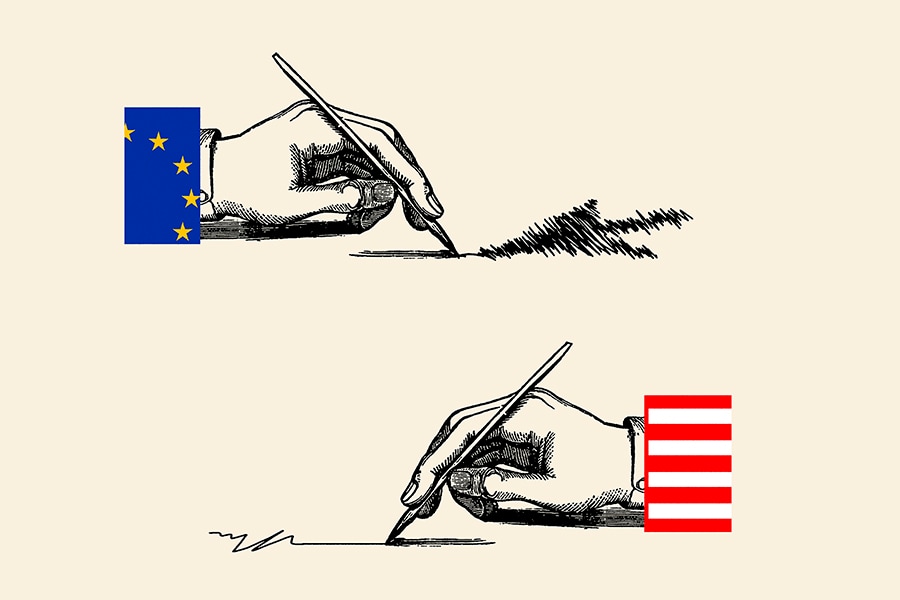
Europe approves new tech laws, US falls further behind
The United States may be the birthplace of the iPhone, Google, and even the so-called metaverse, but global leadership on tech regulations is taking place more than 3,000 miles from Washington, by European leaders who have been able to agree on basic online protections for their 450 million or so citizens of the bloc
 In just the last few years, Europe has seen a landmark law for online privacy take effect, approved sweeping regulations to curb the dominance of the tech giants and on Friday, April 22, 2022, was nearing a deal on new legislation to protect its citizens from harmful online content. For those keeping score, that’s Europe: three. United States: zero. (Matt Chase/The New York Times)
In just the last few years, Europe has seen a landmark law for online privacy take effect, approved sweeping regulations to curb the dominance of the tech giants and on Friday, April 22, 2022, was nearing a deal on new legislation to protect its citizens from harmful online content. For those keeping score, that’s Europe: three. United States: zero. (Matt Chase/The New York Times)
In just the last few years, Europe has seen a sweeping law for online privacy take effect, approved far-reaching regulations to curb the dominance of the tech giants and Saturday reached a deal on new legislation to protect its citizens from harmful online content.
For those keeping score, that’s Europe: 3, United States: 0.
The United States may be the birthplace of the iPhone and the most widely used search engine and social network, and it could also bring the world into the so-called metaverse. But global leadership on tech regulations is taking place more than 3,000 miles from Washington, by European leaders representing 27 nations with 24 languages, who have nonetheless been able to agree on basic online protections for their 450 million or so citizens.
In the United States, Congress has not passed a single piece of comprehensive regulation to protect internet consumers and to rein in the power of its technology giants.
It’s not for lack of trying. Over 25 years, dozens of federal privacy bills have been proposed and then ultimately dropped without bipartisan support. With every major hack of a bank or retailer, lawmakers have introduced data breach and security bills, all of which have withered on the vine. A flurry of speech bills have sunk into the quicksand of partisan disagreements over freedoms of expression. And antitrust bills to curtail the power of Apple, Amazon, Google and Meta, the owner of Facebook and Instagram, have sat in limbo amid fierce lobbying opposition.
©2019 New York Times News Service







